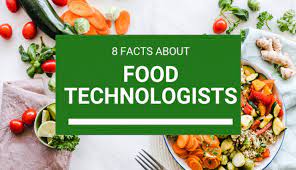
Exploring the Future of Food Technology: Innovations Shaping the Way We Eat
The Future of Food Technology
Food technology is rapidly evolving, revolutionizing the way we produce, distribute, and consume food. With advancements in science and technology, the food industry is undergoing a significant transformation that promises to improve efficiency, sustainability, and nutrition.
One of the key areas of innovation in food technology is in the development of alternative protein sources. As concerns about environmental sustainability and animal welfare grow, researchers are exploring plant-based proteins, lab-grown meats, and insect-based products as viable alternatives to traditional animal agriculture.
Advances in food processing techniques are also reshaping the industry. From high-pressure processing to nanotechnology, these methods are enhancing food safety, extending shelf life, and preserving nutritional content without the need for artificial additives.
Furthermore, digital technologies are playing a crucial role in optimizing supply chains and reducing food waste. Blockchain technology is being used to enhance traceability and transparency in food production, while artificial intelligence is helping farmers improve crop yields and minimize resource usage.
Personalized nutrition is another exciting frontier in food technology. By leveraging data analytics and genetic testing, companies can tailor diets to individual needs and preferences, offering customized meal plans that optimize health outcomes.
Overall, the future of food technology holds great promise for addressing pressing global challenges such as climate change, food security, and public health. By embracing innovation and collaboration across disciplines, we can create a more sustainable and equitable food system that benefits both people and the planet.
5 Innovative Food Technology Strategies for Enhancing Shelf Life, Creativity, and Sustainability
- Utilize food preservation techniques such as canning, freezing, and drying to extend the shelf life of perishable foods.
- Experiment with molecular gastronomy techniques like spherification or foams to create innovative dishes and textures.
- Implement automation in food production processes to increase efficiency and consistency in manufacturing.
- Stay informed about food safety regulations and standards to ensure compliance and maintain consumer trust.
- Explore sustainable packaging options such as biodegradable materials or recyclable packaging to reduce environmental impact.
Utilize food preservation techniques such as canning, freezing, and drying to extend the shelf life of perishable foods.
Utilizing food preservation techniques such as canning, freezing, and drying is a practical and effective way to extend the shelf life of perishable foods. By preserving food through these methods, you can not only reduce food waste but also ensure a constant supply of fresh ingredients for your meals. Canning helps seal in flavors and nutrients, while freezing maintains the texture and taste of foods for an extended period. Drying is ideal for preserving herbs, fruits, and meats, allowing you to enjoy seasonal produce year-round. Incorporating these food preservation techniques into your routine can help you save money, minimize trips to the grocery store, and make the most out of your ingredients.
Experiment with molecular gastronomy techniques like spherification or foams to create innovative dishes and textures.
By experimenting with molecular gastronomy techniques such as spherification or foams, chefs can push the boundaries of culinary creativity and create innovative dishes that tantalize both the palate and the senses. These cutting-edge methods allow for the transformation of familiar ingredients into unique textures and forms, opening up a world of possibilities for culinary expression. Whether it’s surprising guests with a burst of flavor from a liquid-filled sphere or adding a delicate foam to elevate a dish’s presentation, incorporating these techniques can take dining experiences to new heights.
Implement automation in food production processes to increase efficiency and consistency in manufacturing.
Implementing automation in food production processes can significantly enhance efficiency and consistency in manufacturing. By integrating automated systems and robotics into various stages of food processing, companies can streamline operations, reduce human error, and ensure uniform quality in their products. Automation not only speeds up production but also allows for precise control over key variables, leading to more reliable outcomes. With the adoption of automation technologies, food manufacturers can improve productivity, reduce costs, and ultimately deliver higher-quality products to consumers.
Stay informed about food safety regulations and standards to ensure compliance and maintain consumer trust.
Staying informed about food safety regulations and standards is crucial in the realm of food technology. By keeping abreast of the latest guidelines and requirements, businesses can ensure compliance with industry best practices, ultimately safeguarding consumer health and trust. Adhering to these regulations not only demonstrates a commitment to quality and safety but also helps mitigate risks associated with potential foodborne illnesses or contamination. Upholding these standards is essential for maintaining consumer confidence in the products and processes within the food industry.
Explore sustainable packaging options such as biodegradable materials or recyclable packaging to reduce environmental impact.
Exploring sustainable packaging options, such as biodegradable materials or recyclable packaging, is a crucial step in minimizing the environmental impact of food technology. By opting for eco-friendly packaging solutions, we can significantly reduce waste and contribute to a more sustainable future. Choosing materials that can be easily recycled or naturally decompose not only helps protect the environment but also promotes a circular economy where resources are reused efficiently. Embracing sustainable packaging practices is essential in creating a greener and more responsible food industry that prioritizes environmental stewardship.



